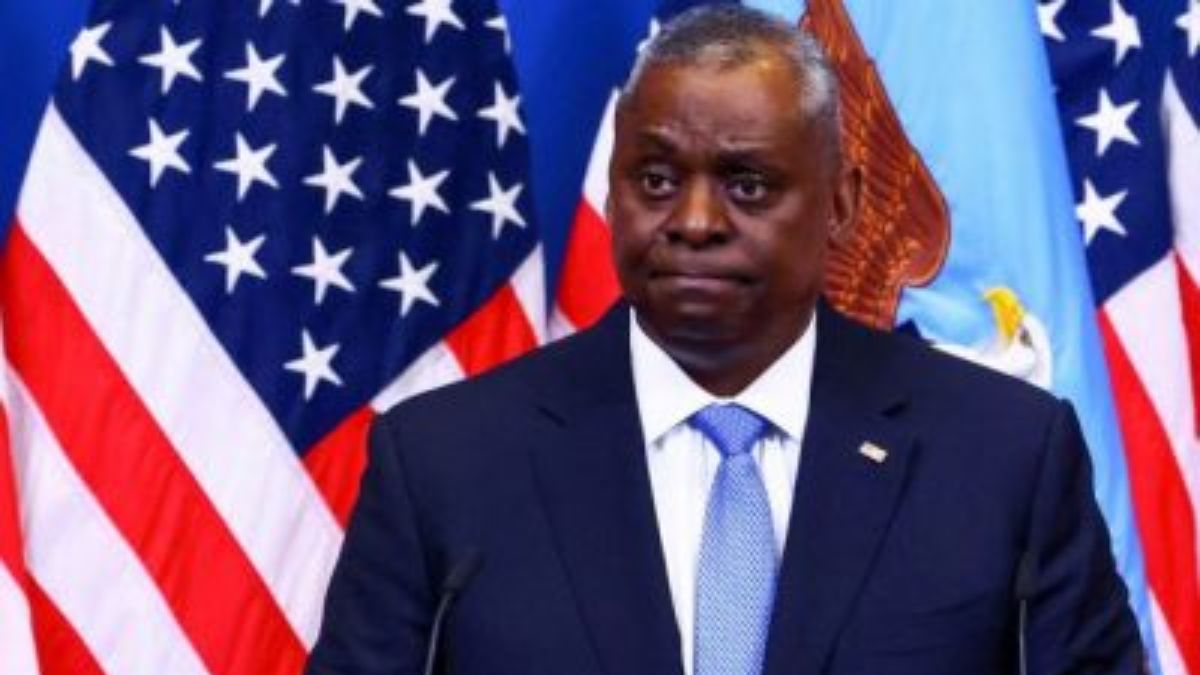US National Security Advisor Jake Sullivan said Saturday that logistics – rather than unwillingness – caused delays in aid to Ukraine, but acknowledged Washington needed to do more to help Kyiv fight Moscow’s invasion.
“It’s not a matter of political will. It’s a matter of busting through these difficult and complicated logistics,” Sullivan told a forum in Kyiv, referring to military aid. “But given what Ukraine is up against, we’ve got to do more, and we’ve got to do better.”
Biden is “determined to use the four months to put Ukraine in the best possible position to prevail,” Sullivan said.
“President Zelensky has said that ultimately this war has to end through negotiations, and we need them to be strong in those negotiations,” Sullivan said, adding Ukraine would decide when to enter negotiations with Russia.
Sullivan was speaking via video-link at a conference organised by the Victor Pinchuk Foundation.
The US President will meet with his Ukrainian counterpart Volodymyr Zelensky at the next UN General Assembly in late September, he said.
A senior NATO military official said on Saturday that Ukraine would have a good military reason to strike deeper into Russia using Western weapons.
President Vladimir Putin has said the West would be directly fighting Russia if it allowed Ukraine to strike with Western-made long-range missiles.
At a meeting in Prague of the North Atlantic Treaty Organization’s Military Committee - the alliance’s highest military authority - its chairman Admiral Rob Bauer said the law on armed conflict gave a nation the right to defend itself and that did not stop at its border.
Impact Shorts
More ShortsAt the same time, he said, nations providing weapons also had a right to place limitations on their use.
Biden met with British Prime Minister Keir Starmer on Friday, after this week’s visit to Kyiv by their top diplomats, who came under fresh pressure to loosen weapons restrictions. U.S. officials familiar with discussions said they believed Starmer was seeking Biden’s approval to allow Ukraine to use British Storm Shadow missiles for expanded strikes in Russia.
Biden’s approval may be needed because Storm Shadow components are made in the U.S. The officials, who spoke on condition of anonymity to share the status of private conversations, said they believed Biden would be amenable, but there has been no decision announced yet.
Providing additional support and training for Ukraine was a key topic at the NATO chiefs’ meeting, but it wasn’t clear Saturday if the debate over the U.S. restrictions was discussed.
Many of the European nations have been vigorously supportive of Ukraine in part because they worry about being the next victim of an empowered Russia.
At the opening of the meeting, Czech Republic President Petr Pavel broadly urged the military chiefs gathered in the room to be ”bold and open in articulating your assessments and recommendations. The rounder and the softer they are, the less they will be understood by the political level.”
The allies, he said, must “take the right steps and the right decisions to protect our countries and our way of life.”
The military leaders routinely develop plans and recommendations that are then sent to the civilian NATO defense secretaries for discussion and then on to the nations’ leaders in the alliance.
The U.S. allows Ukraine to use American-provided weapons in cross-border strikes to counter attacks by Russian forces. But it doesn’t allow Kyiv to fire long-range missiles, such as the ATACMS, deep into Russia. The U.S. has argued that Ukraine has drones that can strike far and should use ATACMS judiciously because they only have a limited number.
Ukraine has increased its pleas with Washington to lift the restrictions, particularly as winter looms and Kyiv worries about Russian gains during the colder months.
“You want to weaken the enemy that attacks you in order to not only fight the arrows that come your way, but also attack the archer that is, as we see, very often operating from Russia proper into Ukraine,” said Bauer. “So militarily, there’s a good reason to do that, to weaken the enemy, to weaken its logistic lines, fuel, ammunition that comes to the front. That is what you want to stop, if at all possible.”
Brown, for his part, told reporters traveling with him to the meeting that the U.S. policy on long-range weapons remains in place.
But, he added, “by the same token, what we want to do is — regardless of that policy — we want to continue to make Ukraine successful with the capabilities that have been provided” by the U.S. and other nations in the coalition, as well as the weapons Kyiv has been able to build itself.
“They’ve proven themselves fairly effective in building out uncrewed aerial vehicles, in building out drones,” Brown told reporters traveling with him to meetings in Europe.
Defense Secretary Lloyd Austin has made similar points, arguing that one weapons system won’t determine success in the war.
“There are a number of things that go into the overall equation as to whether or not you know you want to provide one capability or another," Austin said Friday. “There is no silver bullet when it comes to things like this.”
He also noted that Ukraine has already been able to strike inside Russia with its own internally produced systems, including drones.
With inputs from agencies.


)

)
)
)
)
)
)
)
)



